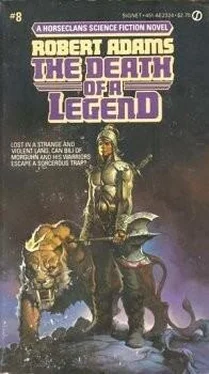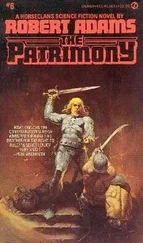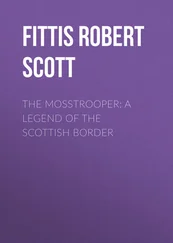He had already seen one brother slain by these rebels, and he had no wish to have two or even one more go to Wind. There was a good chance that the mounted Freefighters and Confederation lancers would not fight at all this day; and even if they were called upon to smash back any sortie which might be made to relieve or reinforce the two salients, Djaik and Gil would be much better off heavily armed and in the saddles of their fully trained destriers and fighting the kind of combat with which they were most familiar than they would be afoot, in half-armor, clawing through abattises and clambering up shaky ladders.
Bili did not much like undertaking that prospect himself, but since the High Lord had elected to personally lead this attack, the Morguhn of Morguhn had felt honor-bound to serve at his overlord’s side.
Aldora had shaved his head early last evening, and the rising sun glinted on the shiny scalp as he carefully checked and rechecked the fit and fastenings of harness on the two horses that would bear him and the High Lord until the attack actually commenced.
The High Lord’s big chestnut nuzzled at Bili’s thigh and mindspoke. “Am I to have no armor at all? Or did you forget mine as you forgot the most of your own, twolegs?”
Bili slapped the muscular neck affectionately, scratching away at the base of the neatly roached mane until the horse was almost purring. He silently answered, “It be a hot morn, already, and the day will be even hotter and very long. You two will be doing no fighting, so why burden you down with armor and padding, eh?
“Your brother, the High Lord Milo, and I will not have your thews to help us bear the weight of plate in the coming battle, so we wear only helms and cuirasses, plus gorgets, shoulder pieces, brassarts and kneecops, with our swords slung across our backs.”
The chestnut stamped and snorted derision, rolling his eyes. “Stupid! That, twolegs, be a stupid way to fight. Yes, it be hot, but not so hot as the lands where I was foaled. Put on our armor and your own; we can fight as well as you.” Bili chuckled to himself; this chestnut could be every bit as stubborn and set in his ways as could his own stallion brother, Mahvros. “I know well that you can fight, brother, but can you climb twelve-foot stone walls? Do you think that your armor will stop sixty-pound boulders or eight-foot spears… or did you intend to catch them all in your teeth, perhaps?”
“My lord duke… T
Bili turned from the horse to face Captain Pawl Raikuh. This Freefighter officer who commanded Bili’s company of hired fighters was also half-armored, with the hilt of his broadsword jutting up behind his left shoulder and his left hand gripping a five-foot spearshaft with two feet of double-edged pike blade riveted to it Behind the captain stood Color Sergeant Geros Lahvoheetos, similarly armed and holding the ten-foot shaft about which was furled the Red Eagle Banner of the House and Clan of Morguhn.
“What are you doing here, Pawl?” Bili demanded in a voice tinged with surprise. “I would have thought you’d send Hohguhn or Krahndahl to lead this contingent under me.
Surely you’re not depending upon either of them to captain our cavalry today?” Raikuh grinned. “No, my lord. My lord’s brother, Lord Djaik, vice-captains his horse for this engagement.”
Bili first started, then relaxed, smiling. “Oh, nominally, you mean. I thank you for that courtesy to him, Pawl.”
“Scant courtesy, that.” Raikuh shook his head, his lobster-tail napeguard rattling. My lord Djaikuhb will lead. And should it come to action, I’m sure he’ll do your lordship proud.”
“Oh, come now, Pawl,” snapped Bili deprecatingly. “Our troop is composed entirely of veterans, and, as such, they’ll not be putting their lives on the line at the behest of an overgrown fourteen-year-old. Men have to respect a warleader.”
Raikuh sobered. “And respect my lord’s brother they do, one and all. Any who chanced to not see Lord Djaik fence Old Pyk, the senior weaponsmaster, to a standstill last night have heard of it. And besides, they’ll be nattered to have a blood brother of my lord to lead them.”
Bili frowned. “Well, what then of my other brother, Gil? He be anything but feckless. Think you he then will mildly obey the dictates of a younger brother? I doubt it.”
Raikuh’s grin returned with a vengeance. “Hardly, my lord. My lord’s brothers had… ahhh, some few words on the matter. My lord Gil has decided to ride with Duke Hwahltuh’s force.”
Bili could just bet they had “some few words on the matter.” Since first the two Morguhn cadets had been reunited, it often had been all that their elder brother and chief could do to keep them from each other’s throats—and in cold, deadly earnest, at that.
Both Djaikuhb and Gilbuht were experienced warriors and natural leaders… and that last was a part of the problem. But the biggest bone of contention between the two lay to the north of the Confederation, in the lands where they had fostered, had their upbringing and arms training.
The Duchy of Zunburk, which had sheltered Gilbuht for almost eight years, was a traditional ally of the Kingdom of Harzburk. Harzburk’s ancient foe was the Kingdom of Pitzburk, wherein Djaikuhb had been fostered and trained for six years.
When Strahteegos Vahrohnos Ahrtos of Theesispolis reported his troops to be ready, the High Lord—wearing no more armor than did Bill or Captain Raikuh—emerged from his pavilion and mounted his chestnut, hanging a hooked and spiked warhammer on his pommel. In obedience to his mind-spoken command, his mount began a slow trot toward the waiting ranks of the Confederation infantry. As there had been no desire to keep secret their day’s objectives, engines had been pounding the fortifications crowning and ringing the two hillocks since there had been enough light to lay and sight them; and they were still hard at the job. Bili could see dust spurts, hear the distance-muffled thuds of the boulders against timber, masonry and earthworks, while the smoke from the blazes caused by the pitchballs and firespears rose high into the windless morning sky. To his experienced eye, it did not appear that the engines’ missiles had effected much real damage to either of the salients. A few dressed stones had been knocked askew here and there and more had surely been loosened, the timber facings of some of the earthworks were smashed and splintered in places, but the bulk of the thick, wide, cunningly laid abattises—designed to hold attacking men in one place long enough for the defenders’ darts and slingstones and arrows to thin their ranks—seemed to be virtually untouched.
The High Lord’s mindspeak answered the young man’s unasked question. “Oh, yes, Bili, my engineers know well their work. But much of that is green wood, still in the bark and, consequently, hard to fire. Also, the bastards apparently have plenty of water, and they’ve managed to quench nearly every fire we’ve managed to start. I can but hope that you’re as good at axing wood as you are at axing men.”
Accompanied by Bili, Captain Raikuh, Strahteegos Ahrtos and his entourage, a squad of his personal mounted guards and their commander, Mehgah Aib Fahrlee, the High Lord slowly inspected the formations of infantrymen—twelve thousand, in all, drawn up in battalion front.
The assault companies were foremost, bearing woodsman’s axes, pry bars and hooked poles for pulling apart the outer entanglements. They were shieldless, but armed with wide and heavy shortswords and half-armored in good plate. Next were the infantry archers, their compound bows larger and more powerful than the cavalry weapon. Their mission was to keep the defenders too busy ducking arrows to loose any of their own at the laboring assault companies until enough of the abattises were cleared away for the actual attack to begin. Then came rank upon serried rank of heavy infantry, the backbone of the Army of the Confederation, spearbutts and ironshod shields grounded. Their helms were fitted with nape-guards, cheekpieces and nasals, the collars of their knee-length scaleshirts were chin-high, and the plate greaves strapped to their lower legs included a kneecop which was spiked to facilitate climbing. The long pikes which Bili had seen them sloping on the march had been replaced by six-foot spears.
Читать дальше












